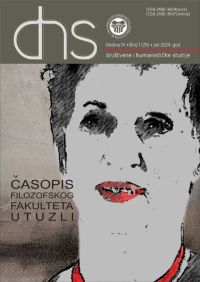Spolne razlike u motiviranom ponašanju hrvatskih studenata anglistike i germanistike u izvannastavnom kontekstu
Gender Differences in Motivated Behavior by Croatian Students of English and German in the Out-of-School Context
Author(s): Manuela KarlakSubject(s): Gender Studies, Education, Psychology, Higher Education , Sociology of Education
Published by: Filozofski fakultet Univerziteta u Tuzli
Keywords: motivation; motivated behavior; out-of-school context; English studies; German studies;
Summary/Abstract: Motivation is one of the key variables in second language acquisition. Motivation is also an extremely complex phenomenon that is very difficult to precisely measure due to its multidimensionality. Previous research in the Croatian educational context indicates that the intensity of motivation may depend on the target language being learned (e.g. Karlak 2014; Karlak and Mayer 2021; Karlak and Šimić 2016; Karlak and Mayer 2021; Mihaljević Djigunović and Bagarić 2007), but also that differences in the intensity of motivation exist about gender, favoring higher values among female students compared to male students in various dimensions of motivation (e.g. Karlak and Bagarić Medve 2016; Martinović 2018; Martinović and Sorić 2018). Research also shows that female students of English as a foreign language significantly more often engage in various forms of motivated behavior in the out-of-school context, such as watching television in that language, reading, listening to music, and conversing with various individuals in person (e.g. Karlak and Bagarić Medve 2016; Muñoz 2020). The conducted research aimed to determine and compare whether there are gender differences in the Croatian foreign language learning context regarding the frequency of engaging in various forms of motivated behavior in the out-of-school context, and self-assessment of communicative language competence among students studying English or German, since such research is scarce. The results show that gender differences are more numerous in the English language sample. Findings also indicate that female students, compared to male students, more frequently engage in various forms of motivated behavior in the out-of-school context. However, male students assess their level of communicative language competence higher than female students, and this difference is statistically significant among English students in the area of vocabulary.
Journal: DHS-Društvene i humanističke studije: časopis Filozofskog fakulteta u Tuzli
- Issue Year: XV/2024
- Issue No: 25
- Page Range: 825-846
- Page Count: 22
- Language: Croatian

